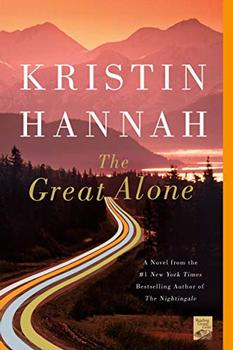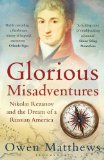Summary | Excerpt | Reviews | Beyond the book | Read-Alikes | Genres & Themes | Author Bio

The Wind Is Not a River is Brian Payton's gripping tale of survival and an epic love story in which a husband and wife - separated by the only battle of World War II to take place on American soil - fight to reunite in Alaska's starkly beautiful Aleutian Islands.
Following the death of his younger brother in Europe, journalist John Easley is determined to find meaning in his loss. Leaving behind his beloved wife, Helen, he heads north to investigate the Japanese invasion of Alaska's Aleutian Islands, a story censored by the U.S. government.
While John is accompanying a crew on a bombing run, his plane is shot down over the island of Attu. He survives only to find himself exposed to a harsh and unforgiving wilderness, known as "the birthplace of winds." There, John must battle the elements, starvation, and his own remorse while evading discovery by the Japanese.
Alone at home, Helen struggles with the burden of her husband's disappearance. Caught in extraordinary circumstances, in this new world of the missing, she is forced to reimagine who she is - and what she is capable of doing. Somehow, she must find John and bring him home, a quest that takes her into the farthest reaches of the war, beyond the safety of everything she knows.
The Wind Is Not a River will likely spark readers' interest in a remote part of the world and in a little-known chapter of World War II history even as it tells a memorable story about the power of love and the will to survive...continued
Full Review
(546 words)
This review is available to non-members for a limited time. For full access,
become a member today.
(Reviewed by Norah Piehl).
In The Wind Is Not A River, the protagonist, journalist John Easley, finds himself on the Aleutian island of Attu in April 1943, when the Battle of the Aleutian Islands is taking place.
We've all heard about the Japanese attack on Pearl Harbor in December 1941, the precipitating event that led the United States to fight in World War II. But perhaps we might not be as familiar with the Battle of the Aleutian Islands that took place from June 1942 to August 1943 – the only WWII campaign to be fought on U.S. soil. Possibly due to an embargo on information from the Alaskan front, it was overshadowed by the more dramatic war stories from Europe and the South Pacific. This might explain why the long struggle to reclaim two American ...
This "beyond the book" feature is available to non-members for a limited time. Join today for full access.

If you liked The Wind Is Not a River, try these:

by Kristin Hannah
Published 2019
From the author of The Nightingale, comes a story of a family in crisis and a young girl struggling to survive at the edge of the world, in America's last true frontier.

by Owen Matthews
Published 2015
From the glittering court of Catherine the Great to the wilds of the New World, Matthews conjures a brilliantly original portrait of one of Russia's most eccentric Empire-builders.
Discovery consists of seeing what everybody has seen and thinking what nobody has thought.
Click Here to find out who said this, as well as discovering other famous literary quotes!